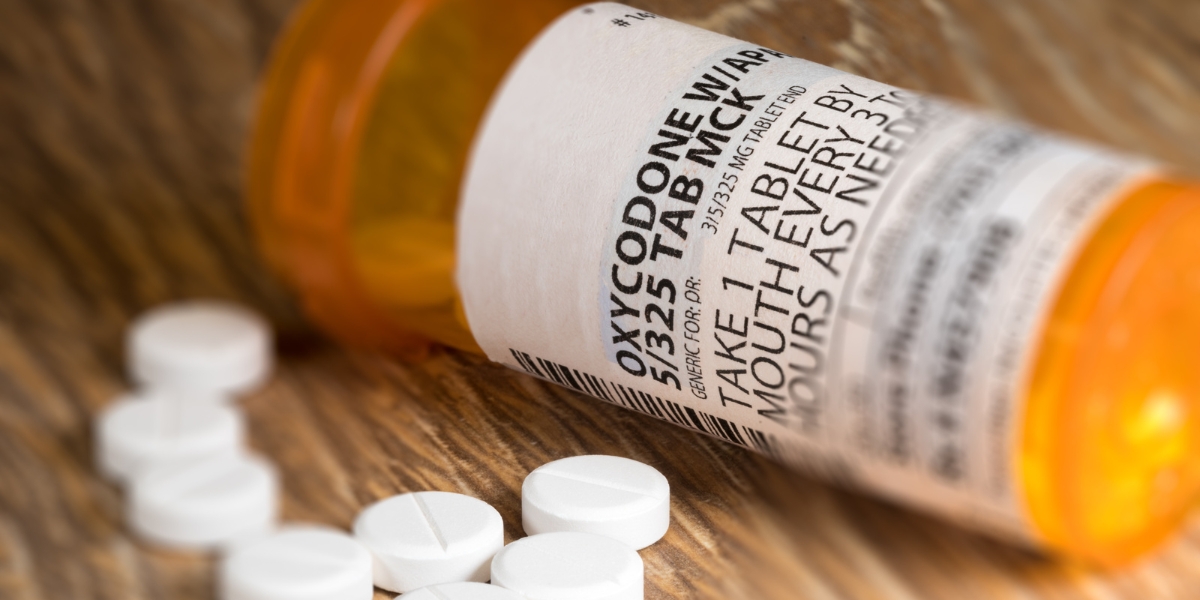Percocet Addiction: Signs and Symptoms

People taking Percocet can develop signs and symptoms of Percocet addiction until it becomes unmanageable and escalates into a dangerous pattern of abuse. As one of the most prescribed opioid painkillers, Percocet has helped fuel the drug abuse and opioid crisis in the United States.
Percocet is the name brand for an opioid pain reliever made of oxycodone and acetaminophen. As well as being a pain reliever, the acetaminophen in Percocet helps reduce fevers and related symptoms.
For people with moderate to severe pain, often those with chronic pain, Percocet helps them live with fewer limitations and suffering. The problem is that many people who start by following their doctor’s instructions soon become addicted to Percocet.
Some surprising statistics around and opioid abuse and addiction include:
- An estimated 100 million people yearly suffer chronic pain. Many will receive prescription drugs to alleviate their conditions.
- An estimated 4.3 million will develop opioid use disorders and abuse opioid painkillers or progress to illegal narcotics like heroin.
- 45% of illegal drug users started with an addiction to prescription drugs.
- Between 1991 and 2013, prescriptions for opioid-based medications like Percocet increased from 76 million to 207 million and continue to rise.
- Over a four-year period of time from 2004 to 2008, emergency department visits involving opioid pain medications increased from 144,600 to 305,900.
- Prescription opioid overdose deaths have tripled in the past 20 years.
People abusing Percocet who manage to avoid an overdose still face addiction, withdrawal, and long-lasting health effects. Knowing the signs and symptoms of addiction can lead to early interventions and entering treatment programs to beat Percocet addiction.
Percocet Addiction Risk
Percocet is a schedule II controlled substance in the United States, meaning it has a high potential for physical and psychological dependence.
There is a common misconception that prescription opioids are less addictive than illegal drugs like heroin. Prescription medications like Percocet come in lower, carefully measured doses with specific guidelines and instructions for use, but there is still a high risk of abuse and addiction.
As a schedule II medication, Percocet is in the same class as these other drugs:
- Morphine
- Fentanyl
- Oxycontin
- Methadone
- Amphetamines
- Hydrocodone
- Amobarbital
Another common misconception is that because doctors widely prescribe prescription drugs like Percocet, they are safe and less addictive than other medications. Pharmaceutical companies like Purdue Pharma deliberately spread this false information to boost their sales and are primarily responsible for the opioid crisis in America.
Besides Percocet’s addictive properties, some outside factors can increase a person’s risk of becoming addicted to Percocet. Discussing these factors with your prescribing doctor before you take Percocet is essential.
Risk factors for developing a substance use disorder include:
- A history of substance abuse
- Easy access to Percocet through friends and family members or your job
- Poor impulse control
- Pre-existing mental health conditions
- A family history of addiction
While risk factors and using Percocet do not guarantee you will develop an addiction, they are factors to keep in mind and disclose when you seek medical advice and treatment.
Understanding Percocet Addiction
Percocet addiction is a chronic relapsing disease with physical, mental, and behavioral signs. Most people don’t start with full-blown addiction; instead, it slowly builds until it becomes the central aspect of their life. Both physical and mental factors contribute to developing tolerance and a substance use disorder.
Abusing Percocet often begins with people taking more than the recommended dose because they no longer feel the effects of the original amount. Unfortunately, repeated doses of Percocet lead to tolerance, which requires more significant or frequent amounts to feel the same impact. Some people also resort to crushing and snorting, smoking, or injecting Percocet to feel the effects faster and more intensely, which hastens the development of addiction.
Opioids bind to specific receptors throughout the brain and body that produce euphoric effects and physical relaxation when taken in high doses. However, the body becomes chemically dependent on substances causing withdrawal symptoms when suddenly deprived of them.
Many people who want to stop taking drugs cannot physically bring themselves to do it because of how uncomfortable withdrawal symptoms become. When their preferred drug is unavailable, many people will use alcohol and similar drugs to self-medicate until they can obtain more Percocet, leading to multiple substance use disorders. The cycle of taking drugs to avoid getting sick from quitting drugs is how addiction becomes a life-long, often fatal disease without proper intervention and help.

Signs and Symptoms
Signs and symptoms of addiction affect all aspects of a person’s life. Some become apparent quickly, and others take some time to become noticeable. Percocet abuse and addiction symptoms manifest in behavioral, physical, and mental changes.
Behavioral signs and symptoms of Percocet addiction include:
- Running out of Percocet before they are eligible for a refill
- Taking more Percocet than the prescribed dose
- Hoarding pills so they won’t run out
- Visiting multiple doctors to get refills
- Asking friends and family members for their Percocet
- Buying Percocet off the street
- Continuing to use Percocet despite harmful effects and experiences
- Stealing money or medications
- Taking other drugs when they cannot get Percocet
- Inability to stop taking Percocet
Physical signs and symptoms of Percocet addiction include:
- Weightloss
- Changes in sleep patterns
- Fatigue
- Constipation
- Slurred speech
- Changes in coordination, balance, and motor skills
- Breathing problems
- Reduced heart rate
- Headaches
- Withdrawal symptoms when they don’t take Percocet
Mental and psychological signs and symptoms of Percocet addiction include:
- Memory problems
- Trouble concentrating
- Poor judgment and decision making
- Mood swings
- Aggression
- Anxiety over running out of the medication
- Irritability
- Depression
People struggling with addiction can be very good at hiding their symptoms or explaining them away to friends and family, so having an objective person assess them can be helpful. Many addiction centers and specialists can refer you to an intervention specialist if you feel the problem is beyond what you can handle. They can also inform you of treatment programs and options for the person with the substance use disorder and their loved ones affected by it.

Long-Term Side Effects
Chronic, long-term abuse of Percocet can take a toll physically, mentally, and socially. Because Percocet is a combination of oxycodone and acetaminophen, it causes damage to the liver and kidneys faster than some other opioid medications, as it is harder for them to process.
Many physical problems will resolve with time and treatment, but the family and social fallout may require therapy and learning new skills to address and repair them while overcoming addiction.
Long-term physical side effects of Percocet addiction include:
- Muscle weakness or deterioration
- Changes in blood pressure
- Changes in heart rate
- Kidney damage
- Liver damage
- Chronic digestion problems
- Chronic fatigue
- Malnutrition
- Vision impairment
- Hearing loss
- Sexual dysfunction
- Seizures
Long-term mental and lifestyle effects of Percocet addiction include:
- Worsening or declining mental health
- Depression
- Anxiety
- Insomnia
- Memory loss
- Hallucinations
- Aggression
- Isolation
- Loss of employment
- Financial trouble
- Strained or damaged relationships with friends and family
- Legal issues
- Suicidal thoughts
- Housing insecurity
Percocet Withdrawal Symptoms
Percocet withdrawal symptoms occur when people dependent on Percocet suddenly stop taking it and involve physical and mental withdrawal symptoms. How severe and prolonged the withdrawal is will be different for everyone based on their biological makeup, the length of their addiction, the amount of Percocet they regularly take, other substances they are addicted to, and underlying mental health issues.
If you plan on quitting Percocet, you should always seek medical advice first. Some people can decrease or taper their doses over time; others may require inpatient medical detox to withdraw safely.
Percocet withdrawal symptoms include:
- Flu-like symptoms
- Fever
- Muscle spasms or tremors
- Sweating
- Insomnia
- Abdominal cramping
- Diarrhea
- Anxiety
- Irritability
- Panic attacks
- Intense drug cravings
- Appetite loss
- Body temperature changes
- Seizures
- Coma
The National Institute of Drug Abuse (NIDA) recommends following medical detox with behavioral therapies and medication-assisted treatment to address any co-occurring mental or physical disorders when necessary for the best long-term recovery outcomes.

Percocet Addiction Treatment
Regardless of how you became addicted to Percocet or how out of hand you feel it has gotten, you can beat addiction. Despite how isolated and overwhelmed it may feel, you are not alone, and with professional help, a new life is possible.
At Northridge Addiction Treatment Center, we specialize in treating every aspect of addiction, withdrawal and repairing the damage addiction has caused in your life and relationships. NATC provides onsite medical detox with 24-care and support to guarantee your safety and comfort through withdrawal.
The natural and calming beauty of Los Angeles’s San Fernando Valley surrounds our residential treatment facility, which you can enjoy while relaxing in our pool and hot tub area. The interior provides a comfortable, private atmosphere with modern amenities like flat-screen TVs, wireless internet, and chef-catered, fresh, gourmet meals for all dietary needs and preferences.
Our compassionate licensed staff works with you to personalize your treatment plan to ensure you get the maximum benefit from our evidence-based treatments. With guided support groups and one-on-one therapy, you’ll build a support system and gain the perspective, skills, and knowledge to stay on a life-long path to recovery and confidently face future challenges.
Reach out to our treatment specialists with any questions and concerns you have. We look forward to getting to know you and helping you take the first steps toward recovery.
Find Meaningful Recovery
Our caring and compassionate specialists are eager to help you comfortably navigate this journey to recovery. Our individualized treatment plan, programs, and therapies may be a perfect match for you or your loved one. Let us assist you in living the happy life you deserve. It starts with a phone call.




